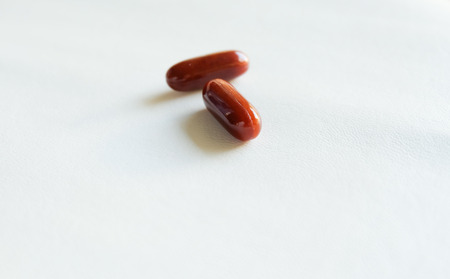1. The Link Between Sugar and Skin Inflammation
When it comes to keeping your skin looking youthful and healthy, what you eat matters—especially when it comes to sugar. In the U.S., added sugars are found in everything from sodas and candy to salad dressings and sauces. But how exactly does sugar impact your skin? Let’s break it down in a simple way.
How Sugar Triggers Inflammation
High sugar intake can lead to chronic inflammation in the body. When you consume too much sugar, your blood glucose levels spike. This spike causes your body to release more insulin, which in turn can trigger inflammation. Over time, chronic inflammation damages skin cells and breaks down collagen—the protein that keeps your skin firm and smooth.
What Is Glycation?
Glycation is a process where sugar molecules attach to proteins or fats in your body, forming harmful compounds known as Advanced Glycation End-products (AGEs). These AGEs weaken collagen and elastin in the skin, leading to wrinkles, sagging, and a loss of skin elasticity.
The Effects of Sugar-Induced Glycation on Skin:
| Affected Skin Component | Impact of Glycation |
|---|---|
| Collagen | Loses flexibility, becomes brittle |
| Elastin | Breaks down faster, causing saggy skin |
| Skin Texture | Becomes rougher and less radiant |
| Wrinkle Formation | Increases due to weakened support structure |
Sugars Role in Acne and Redness
Sugar doesn’t just age your skin—it can also cause breakouts. Foods high in sugar raise insulin levels, which increases oil production in your skin. More oil means clogged pores, leading to acne. Plus, high-glycemic foods (like white bread or candy) can make existing redness or rosacea worse by fueling inflammatory responses.
Choosing Skin-Friendly Alternatives
If youre looking to protect your skin, try cutting back on added sugars. Instead, go for whole foods with natural sweetness like berries or apples. These foods not only satisfy your sweet tooth but also provide antioxidants that help fight inflammation.
Smart Swaps for Better Skin:
| Sugary Food | Healthier Alternative |
|---|---|
| Soda | Sparkling water with lemon or berries |
| Candy or Chocolate Bars | Dark chocolate (70%+ cocoa) or fruit slices |
| Pancakes with Syrup | Whole grain pancakes with fresh fruit topping |
Your diet plays a big role in how your skin looks and feels. By understanding the connection between sugar, inflammation, and glycation, you can make better choices that help support healthier, younger-looking skin over time.
2. Effects of Chronic Inflammation on Skin Aging
Chronic inflammation may not always be visible, but it plays a big role in how our skin ages. When our bodies experience long-term, low-level inflammation—often triggered by diet, stress, lack of sleep, or environmental toxins—it can slowly damage healthy cells, including those in the skin.
How Inflammation Speeds Up Skin Aging
Inflammation releases chemicals called cytokines and free radicals that break down collagen and elastin—the two proteins that keep our skin firm and smooth. Over time, this leads to visible signs of aging like wrinkles, sagging skin, and a dull or uneven tone.
Key Signs of Inflammation-Related Skin Aging:
| Effect on Skin | Description |
|---|---|
| Wrinkles | Loss of collagen reduces elasticity, leading to fine lines and deeper creases |
| Sagging | Breakdown of elastin causes skin to lose firmness and begin to droop |
| Dullness | Inflammation slows cell turnover, making skin look tired and less radiant |
| Redness or Puffiness | Persistent inflammation can cause visible irritation or swelling over time |
The Role of Sugar in Chronic Inflammation
Sugar is one of the biggest contributors to chronic inflammation. Eating too much sugar increases insulin levels and triggers inflammatory responses in the body. This process also leads to glycation—a chemical reaction where sugar molecules attach to proteins like collagen, weakening their structure. The result? Faster skin aging.
How Sugar Affects Your Skin:
- Increases inflammation: Triggers release of pro-inflammatory chemicals that damage skin tissue.
- Promotes glycation: Leads to stiff, brittle collagen thats more prone to wrinkles.
- Reduces hydration: Excess sugar affects water balance in skin cells, making skin appear dry and tired.
Everyday Triggers of Chronic Inflammation
Apart from sugar intake, several lifestyle factors can contribute to chronic inflammation:
| Lifestyle Factor | Inflammatory Impact on Skin |
|---|---|
| Poor diet (processed foods) | Lack of nutrients and high sugar/fat content trigger inflammation. |
| Lack of sleep | Sleep deprivation increases cortisol, which promotes inflammation. |
| Stress | Chronic stress keeps the body in a constant state of alert, raising inflammatory markers. |
| Environmental toxins (pollution, UV) | Exposure increases oxidative stress and accelerates skin aging. |
Understanding how chronic inflammation affects your skin is the first step toward better skincare choices. Whether its adjusting your diet or managing stress levels, small changes can help reduce inflammation and slow the aging process from within.
![]()
3. How Diet Influences Skin Health and Aging
What we eat plays a huge role in how our skin looks and feels over time. A balanced diet doesn’t just help with weight or energy—it also helps reduce inflammation and supports long-term skin health. In fact, many signs of premature aging, like wrinkles, dullness, and loss of elasticity, can be linked to chronic inflammation caused by poor eating habits.
Understanding Inflammation and Sugar
When we consume too much sugar or refined carbs (like white bread or pastries), our bodies respond with an inflammatory reaction. Over time, this type of chronic low-grade inflammation can break down collagen and elastin—two proteins that keep our skin firm and smooth. This process is called glycation, where sugar molecules attach to proteins, making them stiff and less functional.
Common Foods That Trigger Inflammation
| Food Category | Examples | Why Its Harmful |
|---|---|---|
| Sugary Foods | Soda, candy, pastries | High sugar content increases glycation and inflammation |
| Refined Carbs | White bread, pasta, crackers | Quickly turn into sugar in the body |
| Processed Meats | Bacon, sausage, deli meats | Contain preservatives that may trigger inflammation |
| Fried Foods | French fries, fried chicken | Often cooked in unhealthy oils that promote oxidative stress |
The Power of Anti-Inflammatory Foods
On the flip side, there are many foods that naturally combat inflammation and support healthy skin. These foods are rich in antioxidants, healthy fats, vitamins, and minerals—all important for maintaining skin elasticity, hydration, and glow.
Skin-Friendly Foods to Include in Your Diet
| Nutrient Type | Examples | Benefits for Skin |
|---|---|---|
| Omega-3 Fatty Acids | Salmon, chia seeds, walnuts | Reduce inflammation and keep skin moisturized |
| Antioxidants | Berries, spinach, dark chocolate (in moderation) | Protect skin from free radical damage |
| Vitamin C-Rich Foods | Citrus fruits, bell peppers, broccoli | Aids collagen production and brightens skin tone |
| Zinc & Selenium | Pumpkin seeds, Brazil nuts, eggs | Support skin repair and reduce acne-related inflammation |
| Hydrating Foods | Cucumbers, watermelon, celery | Help maintain moisture levels in the skin |
The Link Between Diet and Anti-Aging Supplements
A healthy diet sets a strong foundation for any skincare routine or supplement plan. While anti-aging supplements can provide targeted nutrients like collagen peptides or hyaluronic acid, they work best when paired with a diet that avoids inflammatory triggers. Think of supplements as boosters—not replacements—for good nutrition.
Tip:
If youre already taking anti-aging supplements but still consuming high amounts of sugar or processed foods, you might not see the full benefits. Balancing your meals with whole foods rich in skin-loving nutrients can enhance the effects of your supplements.
A consistent habit of choosing nourishing foods helps calm internal inflammation and promotes vibrant-looking skin as you age. Its not about perfection—it’s about making smarter choices every day.
4. Key Anti-Aging Supplements for Skin
When it comes to fighting the effects of sugar and inflammation on the skin, certain anti-aging supplements can play a big role. These supplements help protect your skin from damage, support collagen production, and reduce signs of aging like fine lines, wrinkles, and dullness. Below are some of the most effective supplements that are widely used in the U.S. for skin health and anti-aging.
Collagen
Collagen is the most abundant protein in our bodies and provides structure to the skin. As we age, collagen production naturally decreases — and high sugar levels can speed up this process through something called glycation, which damages collagen fibers. Taking collagen supplements, especially hydrolyzed collagen peptides, may help improve skin elasticity and hydration.
Benefits of Collagen:
- Improves skin firmness and texture
- Reduces wrinkles and fine lines
- Supports joint and bone health
Antioxidants
Antioxidants help fight oxidative stress caused by free radicals — unstable molecules that can increase due to inflammation or high sugar intake. These free radicals break down collagen and accelerate aging. Antioxidant-rich supplements like Vitamin C, Vitamin E, and CoQ10 can help neutralize these harmful effects.
Common Antioxidants & Their Skin Benefits:
| Antioxidant | Main Benefit |
|---|---|
| Vitamin C | Boosts collagen production and brightens skin |
| Vitamin E | Protects against UV damage and supports healing |
| CoQ10 | Energizes skin cells and reduces signs of aging |
Omega-3 Fatty Acids
Omega-3s are healthy fats found in fish oil, flaxseed oil, and algae-based supplements. They have strong anti-inflammatory properties that can help calm irritated skin, reduce redness, and maintain moisture levels. Since inflammation plays a big role in premature aging — especially when triggered by high sugar diets — omega-3s are a great addition to any skincare supplement routine.
Main Benefits of Omega-3s:
- Reduces inflammation that leads to aging
- Keeps skin hydrated and supple
- Supports heart and brain health too!
Quick Tip:
If youre taking multiple supplements, check with your healthcare provider to ensure theyre right for your body — especially if you have allergies or are on medication. Always look for third-party tested brands for quality assurance.
5. Lifestyle Adjustments for Healthier, Youthful Skin
When it comes to keeping your skin looking youthful and radiant, what you do every day matters. A high-sugar diet and chronic inflammation can speed up the aging process, leading to wrinkles, sagging, and dullness. The good news? Small changes in your lifestyle can make a big difference. Below are practical tips you can start using today to protect your skin from sugar-related damage and inflammation.
Smart Eating Habits
Your diet plays a major role in how your skin looks and feels. Cutting down on added sugars and choosing anti-inflammatory foods can help slow down skin aging.
Foods to Limit and Replace
| Limit These | Replace With |
|---|---|
| Sugary drinks (soda, sweetened teas) | Infused water, herbal tea, sparkling water with lemon |
| White bread and pastries | Whole grain bread, oats, quinoa |
| Candy and processed snacks | Nuts, dark chocolate (70%+ cacao), fresh fruit |
| Fried or fast food | Baked or grilled lean proteins, vegetables cooked with olive oil |
Skincare Tips That Support Anti-Inflammation
In addition to eating better, your skincare routine should support healing and reduce irritation caused by sugar-induced inflammation.
- Use gentle cleansers: Avoid harsh soaps that strip away natural oils.
- Apply antioxidant serums: Look for ingredients like vitamin C, niacinamide, or green tea extract.
- Moisturize daily: Hydrated skin is less prone to inflammation and fine lines.
- Wear sunscreen: UV rays worsen inflammation and speed up aging—use SPF every day.
Wellness Habits That Make a Difference
A healthy lifestyle isn’t just about food and skincare—it’s also about managing stress and getting enough rest. Chronic stress raises cortisol levels, which increases inflammation in the body—including your skin.
Daily Wellness Practices
- Prioritize sleep: Aim for 7–9 hours of quality sleep each night.
- Exercise regularly: Moving your body helps circulation and reduces inflammatory markers.
- Practice mindfulness: Meditation or deep breathing can lower stress hormones that age the skin.
- Stay hydrated: Drinking enough water supports skin elasticity and detoxification.
Taking care of your skin from the inside out doesn’t have to be complicated. By making thoughtful choices around food, skincare, and daily habits, you can help fight off premature aging caused by sugar and inflammation—keeping your skin looking vibrant and youthful for years to come.


